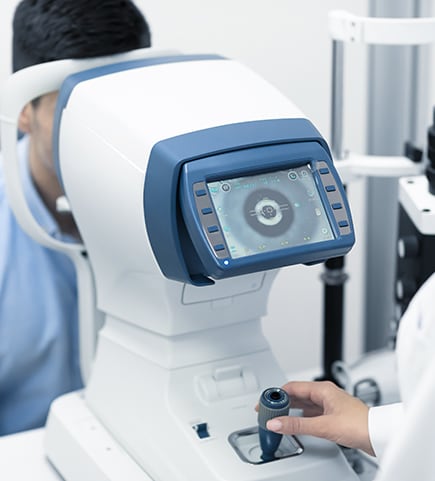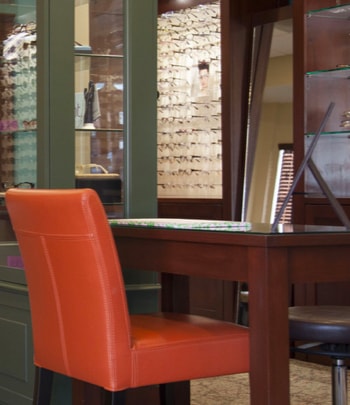Understand the Link Between Your Eyes & Health
When you think about your eyes, do you think about how your body may affect your eye health and vision? If you do, how would you protect your eyes from the health conditions you have or may have a risk of developing?
At Total Vision Pasadena, we understand the relationship between your eyes and overall health. We use a variety of modern technologies and techniques to examine your eyes and the role your body plays in your vision. One of the most common health concerns is diabetes, which currently affects about 34.2 million Americans.
Monitoring these issues is the first step towards preserving your eyesight. Learn more about how we can support your vision when you visit us for an eye exam today.
What Is Diabetes?
Diabetes is a systemic disease that affects how your body manages glucose, known as blood sugar, in your bloodstream. Glucose is essential for providing your body with energy, but diabetes can interrupt the process of glucose entering your blood cells by changing how your body produces or uses a hormone known as insulin.
Diabetes can affect insulin and how your body uses it in several ways, like causing your immune system to attack insulin-producing cells in your pancreas (type 1 diabetes) or making your cells more resistant to insulin (type 2 diabetes).
Eventually, diabetes can cause your body’s blood sugar to rise, leading to various health issues that could affect your heart, teeth, and eyes. Common symptoms may include fatigue, increased thirst and hunger, frequent infections, and periodic blurred vision.


How Diabetes Affect Your Eyes
When your blood sugar levels are high, they can affect a variety of structures in your eye and increase the risk of several different eye diseases and conditions.
We use a selection of modern technology to look for signs of eye disease during an eye exam. We’ll examine your retina, optic nerve, and macula as well as measure your intraocular pressure (IOP) levels to detect signs of eye disease before they permanently affect your vision.
If you have diabetes, we recommend booking annual eye exams. You can help preserve your vision by booking your next eye exam today!
Diabetic Retinopathy
Diabetic retinopathy is a common eye disease associated with diabetes.
When you have high blood sugar, it can cause the blood vessels in your retina to bulge, break, and leak fluid. Over time, these fluids could lead to permanent vision loss and possibly increase the risk of developing other eye diseases, like diabetic macular edema.
Diabetic retinopathy can occur slowly, and it may not display noticeable symptoms during early development. Most people have non-proliferative diabetic retinopathy, but it can progress to proliferative diabetic retinopathy as more blood vessels are damaged.
Proliferative diabetic retinopathy may occur when your retina starts to develop abnormal blood vessels to help compensate for the fluid loss. However, these vessels can also break and leak fluid, creating scar tissue and increasing the risk of retinal detachment.
Diabetic Macular Edema
Diabetic macular edema is an eye disease that can happen in tandem with diabetic retinopathy.
As your retina’s blood vessels leak fluids, these fluids can also cause a part of your eye, called the macula, to swell. The macula provides you with the clear, crisp, central vision you use for seeing sharp details and reading, but swelling can damage your macula over time.
In some cases, diabetic macular edema could lead to permanent vision loss.
Glaucoma
Glaucoma is a group of eye diseases that affects your optic nerve, a part of your eye that delivers the information your retina collects to your brain.
Diabetes can nearly double your risk of developing a version of the disease called open-angle glaucoma, which could lead to permanent vision loss if it’s not managed.
Learn more about glaucoma and its most common types on our Eye Disease Diagnosis & Management page.
Cataracts
Diabetes can also increase your risk of developing cataracts, an eye condition that causes your eye’s crystalline lens to become hazy, milky, and less transparent.
When diabetes damages your retina’s blood vessels, the fluids they leak could increase the blood sugar levels in your aqueous humor. Over time, blood sugar can affect your crystalline lens and cause a cataract.
Visit Us Today

Hours of Operation
- Monday: 8:30 AM – 5:00 PM
- Tuesday: 8:30 AM – 5:00 PM
- Wednesday: 8:30 AM – 5:00 PM
- Thursday: 8:30 AM – 5:00 PM
- Friday: 8:30 AM – 5:00 PM
- Saturday: Closed
- Sunday: Closed


Our Brands




Our Google Reviews
Be the First to Know,
Be the First to Win.
From eye health insights to exclusive giveaways, your feed just got a lot clearer.









